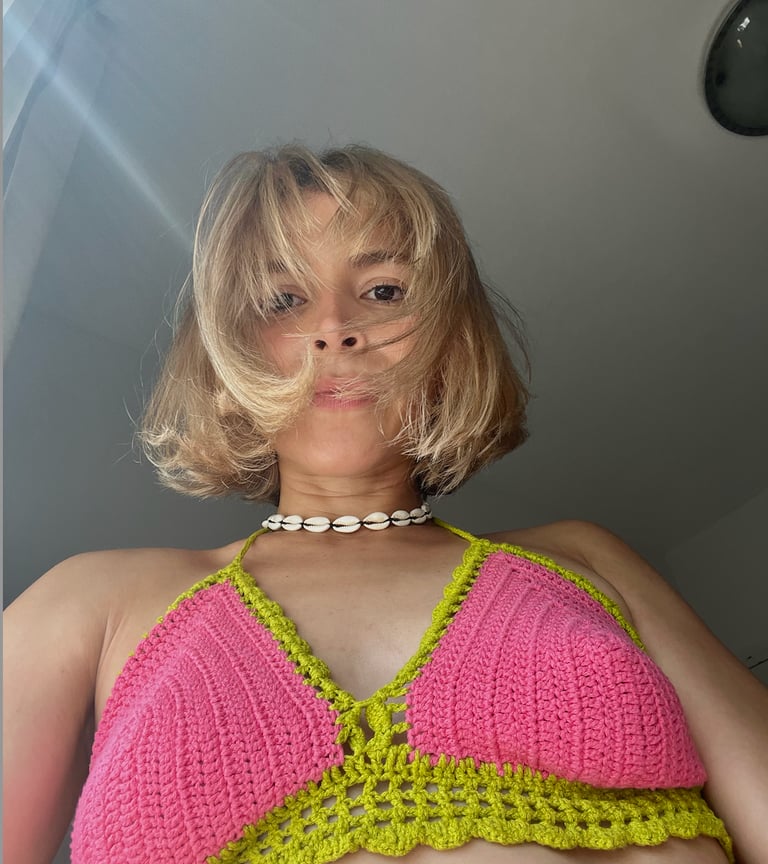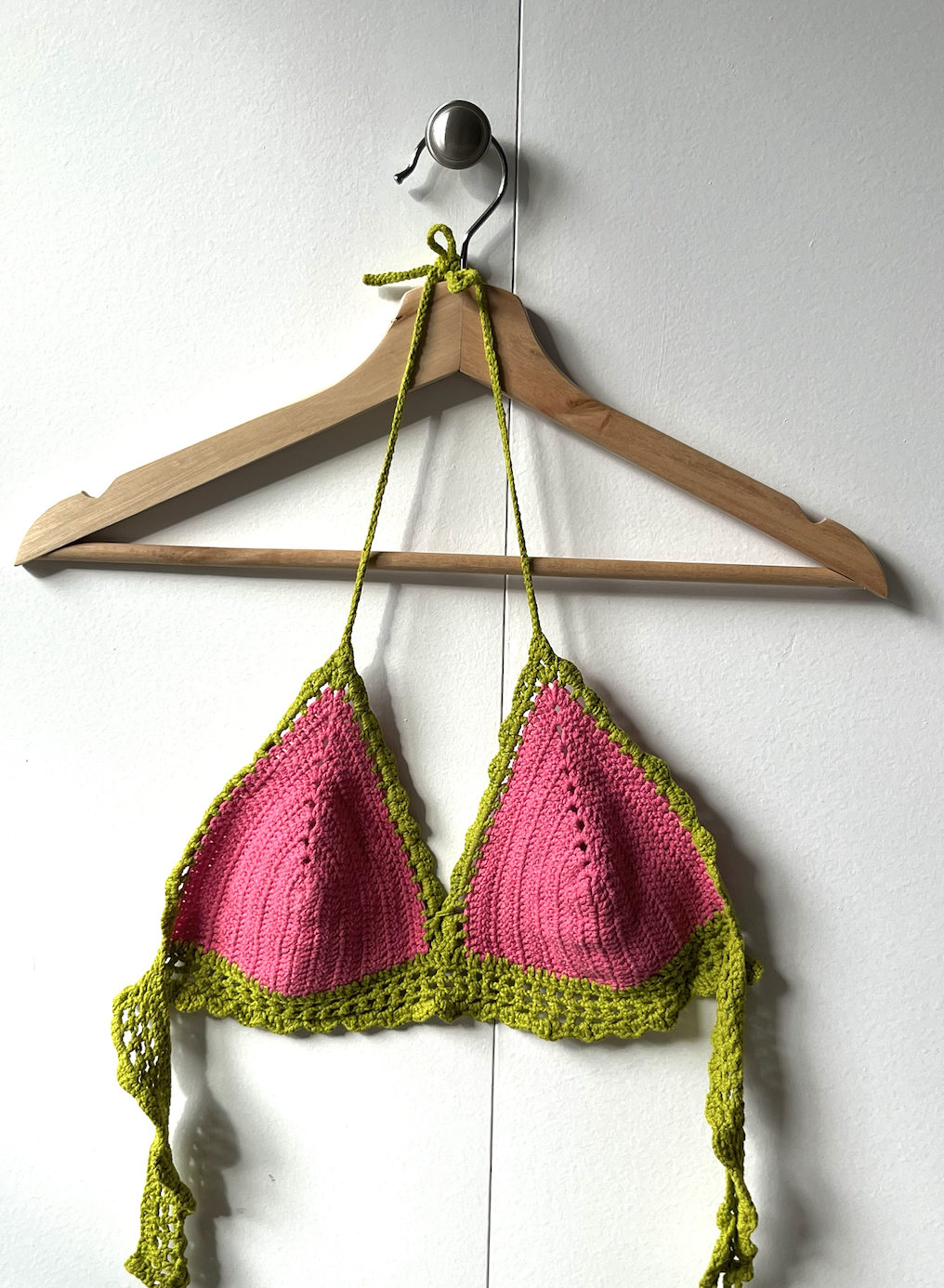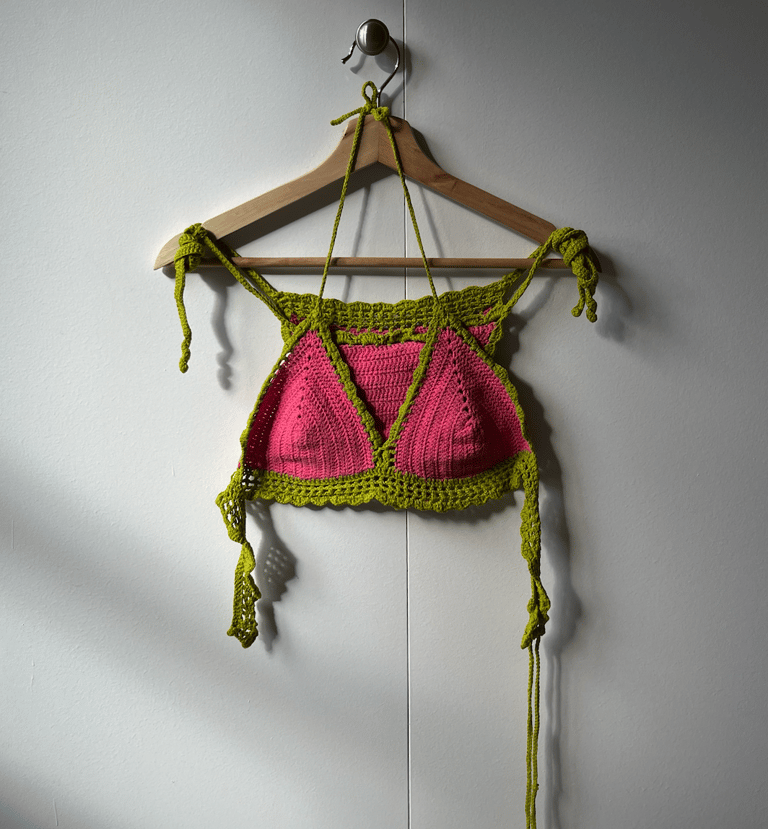The Women Who Wove
A personal reflection on family traditions, a handmade bathing suit, and the ties that bind across generations. Read about how a crocheted swimsuit became a quiet grounding hug.
by nina (andre)
10/30/20243 min read


Two summers ago, as I hurriedly packed to leave Mallorca, my mother gifted me a handmade bathing suit, meticulously crocheted just for me. The moment was bittersweet—with its sheen of lizard green, woven with salmon pink thread and hints of watermelon, I never had the chance to show off my salty curves in it. Despite my indifference to watermelons, I found myself inexplicably drawn to the suit; its vibrant colors promised summer days to come.
One winter morning, I decided to try it on in front of the mirror, amused at the sight of my pale, wintery skin against the suit’s summer hues. Why was I hiding this cold-season version of myself? Forbidden paleness, grey skies. I changed back into my house clothes; after all, it was the weekend.
Then, one almost spring afternoon, I tried the bikini again in front of a different mirror. Yet its beauty felt tucked away, as if biding its time, waiting for the right moment to truly come to life.
Last August, while packing for my holiday, I finally felt ready to wear the bathing suit. What excited me most was not just the beach, but the opportunity to wear my mother’s creation.
It’s fascinating how handmade pieces carry stories. In my family, my mother’s grandmother on her father's side crocheted large tablecloths that adorned her dining table, while my mother’s mother occasionally sewed dresses, including the one my mother wore to marry my father. In my early twenties, I taught myself to machine-sew, craving that feeling of making clothes of my own. Perhaps it was the allure of what the women before me—and I—had resisted. More recently, I’ve started incorporating textile and hand-sewing into my artistic work. Sometimes people ask me why, and I pause. Why do I lean toward these practices?
Certain activities—sewing, stitching, mending—have long been seen as traditionally feminine, carrying expectations that lingered well into the 1970s, even as second-wave feminism began to challenge them. In my grandmother’s time, sewing was a necessary skill, a functional tool every woman needed to know. For her, it wasn’t an art but a duty, something to resist rather than embrace. She actively discouraged her daughters and granddaughters from taking up domestic tasks, urging us to “carve a life for yourself outside the confines of home.” And so I did, spending years resisting anything that hinted at domesticity in its literal form—cooking, sewing—even though I found myself enjoying these activities when done on my own terms.
But with resistance often comes a measure of acceptance. Over time, I came to view acceptance as a way to preserve, to resist the quiet erasure of certain traditions that, while challenging or obligatory for many, have taken on a different meaning for me. These practices aren't obligations anymore but rather expressions of self, and perhaps most importantly, ways to honor nearly-lost stories. For me—and perhaps even for my mother—they have taken on new meanings: not as practical necessities, but as creative, nostalgic practices that hold pleasure in their repetition, and perhaps even a hint of artfulness.
Unlike my terrible sewing skills, my mother, however, is the knitter. She knitted our family together as best she could, just as her grandmother had done. She crochets intricate dolls, bags, scarves, and other ornaments. Sometimes, when I watch her work, I wonder if she’s mending something else—something unseen. For her, crocheting is both focus and meditation.
By the end of that August, after long days swimming in the Mediterranean, my pale skin was no more. The bathing suit, still green and pink, still beautiful, absorbed the water, becoming heavier as the sun did its work, trying to dry the fibers—perhaps to caress my body, offering me shelter and warmth. But it wasn’t burdensome; instead, it moved me. It felt grounding, as if each stitch carried my mother’s touch, like a quiet hug across time.
Thank you for reading!
X,
Nina



